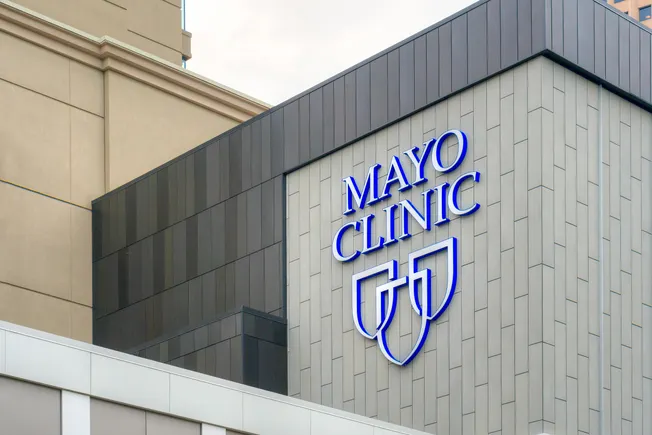Dive Brief:
- The Mayo Clinic in Rochester, Minnesota, illegally refused a security guard’s religious request to be exempted from receiving the COVID-19 vaccine, the U.S. Equal Employment Opportunity Commission alleged in a lawsuit filed Wednesday (EEOC v. Mayo Clinic).
- The guard, a member of Assemblies of God Church, submitted the request in late 2021, shortly after the hospital system mandated employees receive the vaccine. He explained his beliefs, cited Bible passages, and agreed to masking and testing, according to the complaint. The hospital denied his request and said it would fire him if he did not receive the vaccine, EEOC said.
- Mayo Clinic declined to comment, citing pending litigation.
Dive Insight:
While news about vaccine mandates has died down significantly since the first few years of the pandemic, employers are still contending with failure-to-accommodate lawsuits, which often allege religious rights violations.
For EEOC, this pursuit is not necessarily political; the agency under the Biden administration also filed failure-to-accommodate lawsuits related to vaccines. Last August, for example, EEOC sued manufacturer AG Equipment Co., alleging the company fired 10 workers without considering their religious or medical exemption requests.
Likewise, in April 2023, it sued a Michigan-based hospital system for refusing to hire a worker after he would not get the flu shot, despite his religious accommodation request. The first case is still working its way through the courts, while the latter ended in a $50,000 settlement.
Such lawsuits can result in hefty payouts. Late last year, for example, a Michigan jury awarded a former Blue Cross Blue Shield of Michigan employee $12.69 million after the company refused her exemption request and then fired her. In April, the plaintiff and Blue Cross filed court documents requesting to vacate the jury verdict, dismiss post-trial motions and dismiss the lawsuit with prejudice, suggesting a private settlement had been reached.
“Employees have a right to request reasonable religious accommodations without fear of punishment or termination, including for vaccination policies,” EEOC Acting Chair Andrea Lucas said in a Thursday news release announcing the Mayo Clinic lawsuit. In April, Lucas selected the former president of the Christian Employers Alliance to be her chief of staff, potentially signaling a greater focus on religious rights for the agency.
Employers should take religious accommodation requests seriously, attorneys have warned. This especially applies in the wake of Groff v. DeJoy, a U.S. Supreme Court case that raised the bar for employers’ undue hardship claims.






Leave a Reply